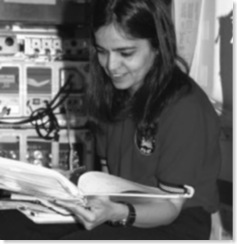Atonement turned out to be a brilliant movie. A simple tragic love story which gets epic status due to the World War II era it is staged in and its background score.
The singular roborant soundtrack by Dario Marianelli is out of this world. Particular attention must be paid to the effective use of the typewriter as a musical instrument. The typewriter motif is used as the signature theme for the central character of Briony. Briony, through the course of the movie, is an instigator, a catalyst and sometimes just the narrator. What she is, in essence, is a writer. The typewriter is her 'weapon' of choice in all instances except two - once in a tranquil setting by a pond she uses a pen and in a much more intense setting, in front of the police, she uses her mouth. In all other instances, her fantasies are rallied through a faithful typewriter. The movie brilliantly uses the rhythmic tapping of the typewriter whenever Briony takes a bow. I am guilty of not reading Ian McEwan novel the movie is based on. Just from watching the movie, it feels like the typewriter was designed to be a natural extension to the character of Briony by the author. There are many instances in the celluloid world where innate objects become an integral part of a story. Briony's typewriter should rank among the top of those imaginative creations. There is an equally brilliant use of an umbrella banging on a car to lead the audience out of an emotional scene.
When a slightly older Briony travels in a train in the middle of the movie we are invited to a re-rendition of the typewriter piece. Briony is lost in thought and is staring vacantly at the camera (perhaps at the stations passing by). The cinematographer gets into the mix as the light and shadows of the passing stations dance on her face to the tune of the typewriter motif. Light also comes into play when a weary soldier trudging through a dark murky forest takes a break, breathes in and a wave of sunlight caresses his face only to disappear when he reopens his eyes to reality. A wonderfully crafted scene.
The cinematographer also has a field day when given the opportunity to can a seemingly continuous five minute shot of three soldiers walking through the stranded army at Dunkirk beach. This trick is of course out of vogue now but gives an interesting view point to a crucial passage of play.
As a side thought, I have been trying to recall instances of songs are background scores that make use of day to day sounds. I could immediately recall "பருவமே (Paruvamae)" song from Mahendran's நெஞ்சத்தை கிள்ளாதே (Nenjaththai Killadhae) and the use of the train whistle in Mani Ratnam's தளபதி (Dhalapadhi). Ilaiyaraja being the man behind both those scores.
I am sure there are more out there. For now, I am wishing that my keystrokes translated into music...




